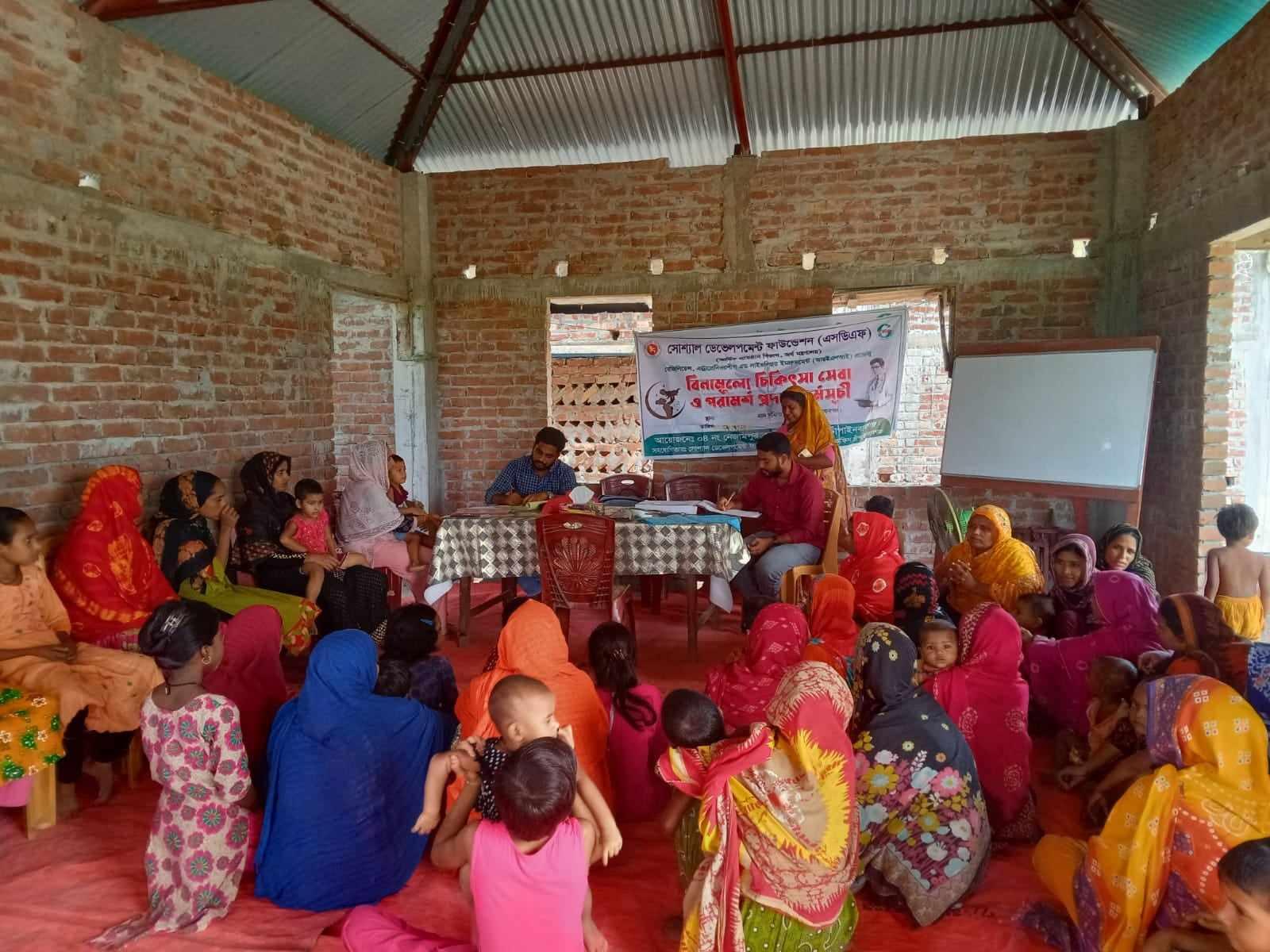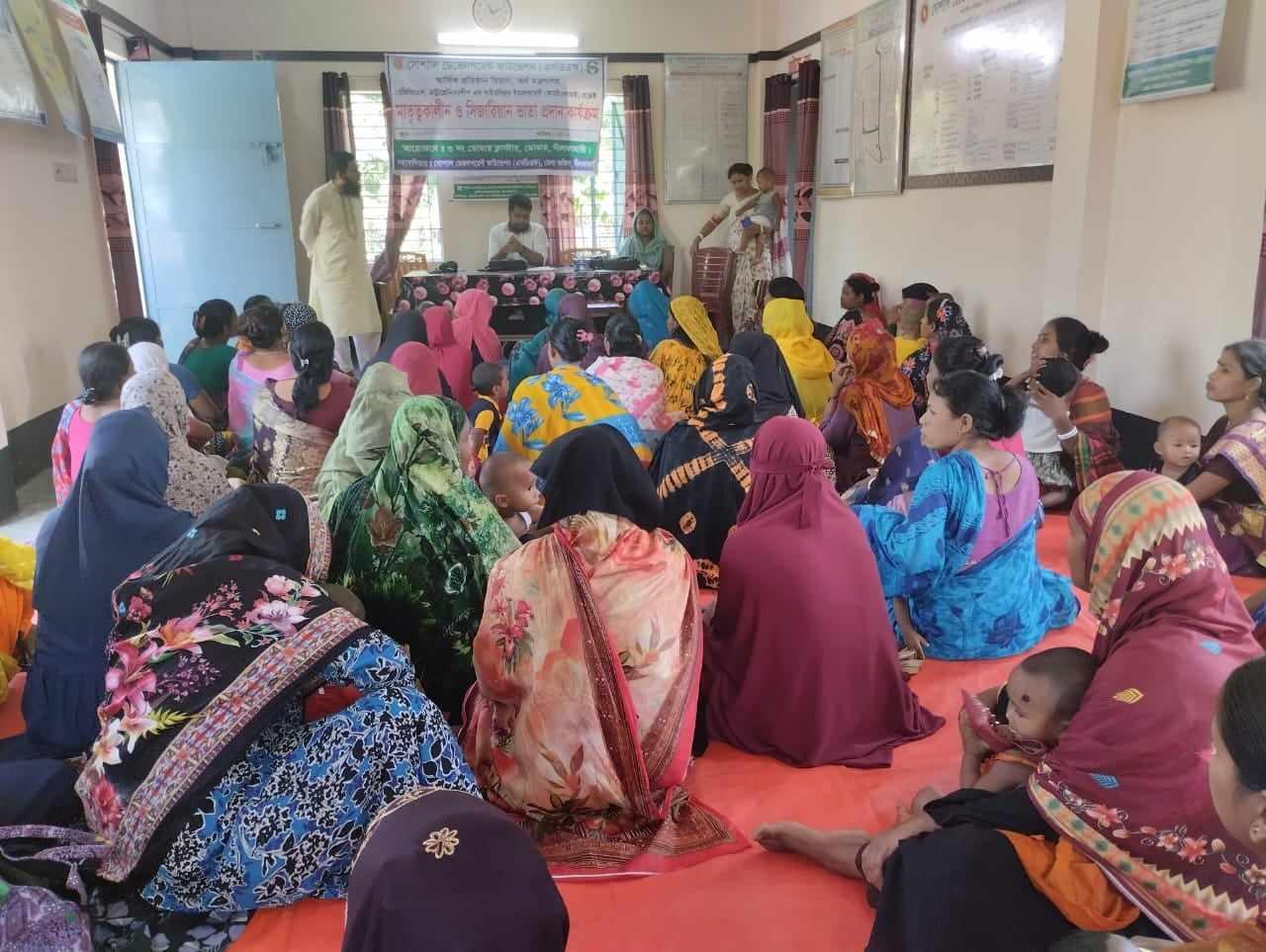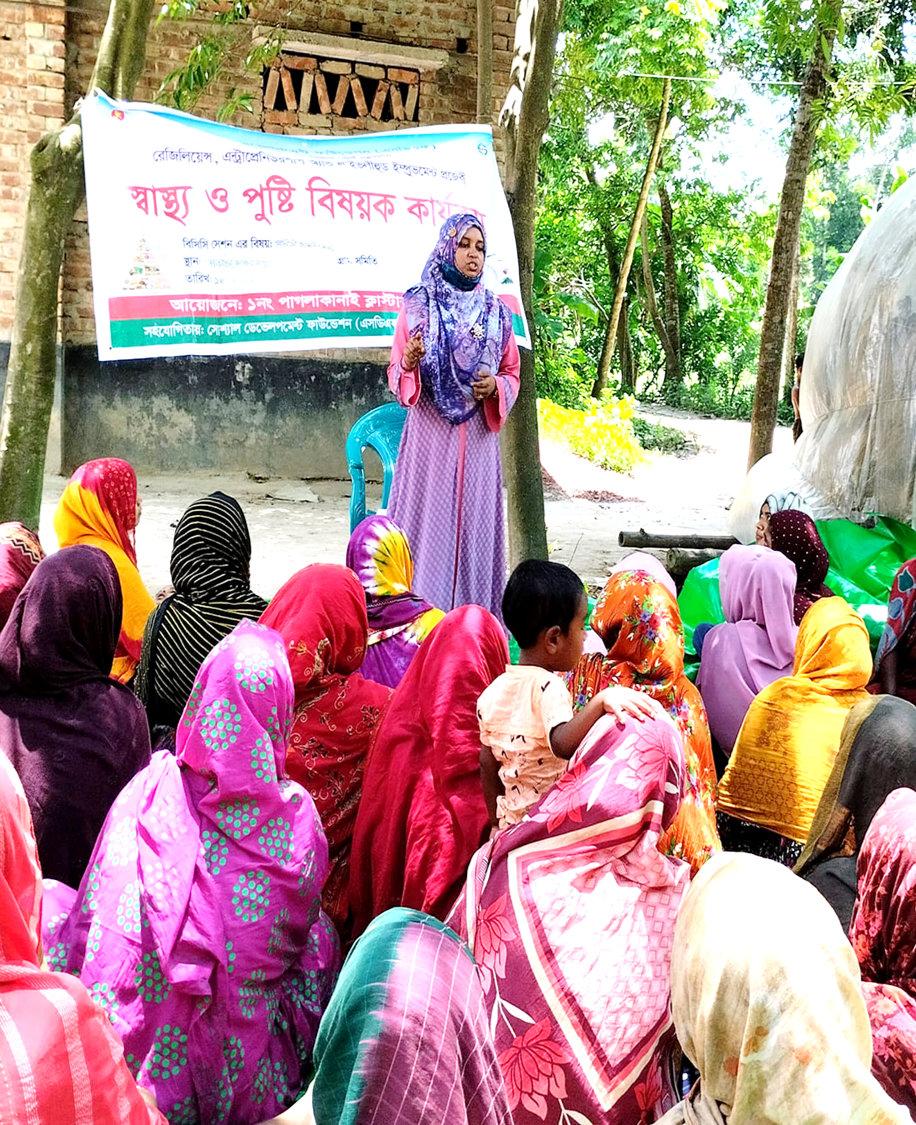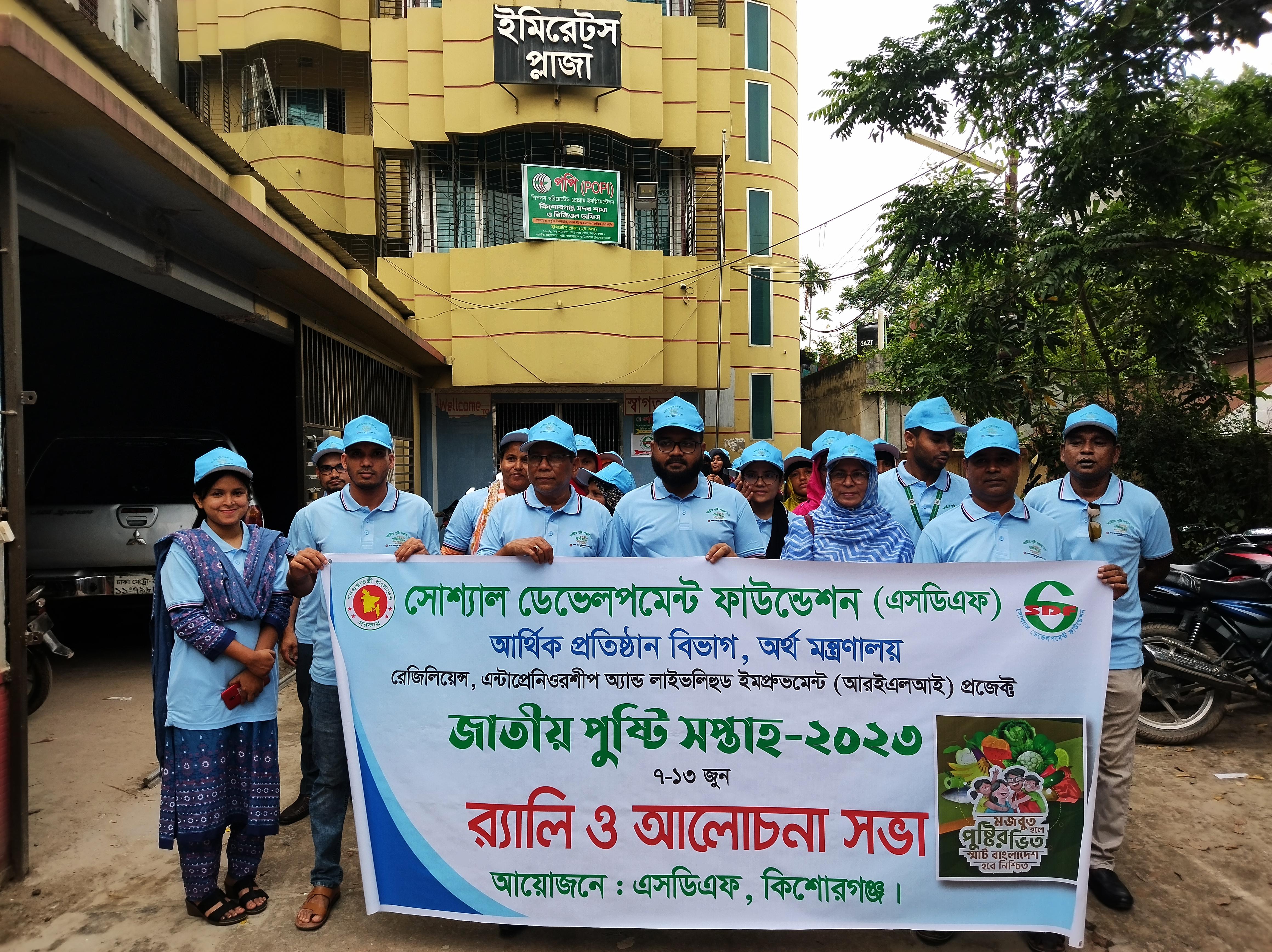
Health and Nutrition Component of the RELI Project
Bangladesh's ongoing struggle with child malnutrition and maternal mortality represents a critical barrier to sustainable development. Recognizing this challenge, the Social Development Foundation (SDF) has taken decisive action through its Resilience, Entrepreneurship, and Livelihood Improvement (RELI) project. The project's Health and Nutrition (HN) component serves as a cornerstone of SDF's interventions in the health and hygiene sector, aiming to address these urgent health issues by implementing targeted strategies across rural Bangladesh. With a staggering 28% of children under five underweight, 31% stunted, and maternal mortality at 173 deaths per 100,000 live births, the RELI project’s HN component has set ambitious goals to tackle these issues head-on.

The HN component is actively operating in 3,200 villages spread across five major regions: Mymensingh, Barishal, Cumilla, Rangpur, and Jessore, reaching a total of 544,000 households. This widespread intervention is supported by a dedicated team of health professionals, including Deputy General Managers, Regional Managers, District Managers, and Cluster Facilitators. Their expertise, ranging from MBBS doctors to paramedics, ensures that essential health services and nutrition guidance reach even the most remote communities. The primary focus is on vulnerable groups such as adolescent girls, pregnant women, lactating mothers, mothers-in-law, and children under five, ensuring that interventions are tailored to the specific needs of each group.
A key aspect of the HN component's strategy is raising awareness about nutrition and promoting sustainable health practices within households. This includes encouraging homestead gardening, which serves as a source of fresh vegetables and enhances dietary diversity. By empowering women with knowledge and resources, the project is not only improving health outcomes but also contributing to financial independence, as many households are now able to sell surplus produce in local markets. These efforts are fostering healthier lifestyles and creating opportunities for economic growth at the grassroots level.
Furthermore, the impact of SDF’s intervention is expected to extend far beyond immediate health improvements. Through collaboration with government health services, the HN component aims to establish stronger health service linkages, ensuring long-term sustainability and resilience for rural communities. As awareness about health and hygiene practices continues to grow, these communities will be better equipped to handle future challenges, leading to a more robust and healthier Bangladesh. In this way, SDF's efforts in the health and hygiene sector are not only transforming individual lives but are also contributing to the broader goal of building a more resilient nation.
The Health and Nutrition (HN) component of the RELI project is a five-year initiative running from July 2021 to June 2026, designed to tackle critical health challenges in rural Bangladesh. It focuses on improving health and nutritional outcomes for vulnerable populations, including children under five, adolescent girls, and pregnant and lactating mothers. This component builds on the successes of the previous Nutrition Awareness and Support Services (NASS) initiative, which ran from August 2015 to June 2020, but has expanded to address a wider range of health issues and promote more comprehensive interventions.

The objectives of the Health and Nutrition (HN) component are to improve the nutritional status of children under five, adolescent girls, and pregnant and lactating mothers, ensuring they receive the necessary support for healthy growth and development. It also aims to enhance maternal health by providing essential antenatal and postnatal care, along with financial allowances to support mothers during this critical period. Additionally, the component focuses on raising community awareness about nutrition and hygiene practices, promoting healthier behaviors and lifestyles within rural communities. To ensure long-term sustainability, the project seeks to strengthen linkages with government health facilities, facilitating improved service delivery and better access to essential healthcare services at the community level.

Key Interventions and Activities
Growth Monitoring and Promotion (GMP):
- Weight and Height scales are provided to every village, allowing for regular monitoring of children’s growth to identify signs of malnutrition like stunting and wasting as well as BMI of adults.
Behavior Change Communication (BCC):
- Nutrition-focused BCC sessions are conducted regularly, targeting 544,000 households. These sessions focus on improving infant and young child feeding (IYCF) practices, promoting exclusive breastfeeding, and encouraging dietary diversity through homestead gardening, etc.
- To date, 53,539 BCC sessions have been held, involving 790,772 cumulative participants. (This Number will be highlighted)
Health Campaigns and Mass IEC
- Mass information and education campaigns are conducted on key health days such as World Health Day, National Nutrition Week, World Breastfeeding Week, and Global Handwashing Day, which help raise awareness of nutrition, maternal health, and hygiene.
- Health Camps: 2,450 health camps were organized across 2,694 villages, treating over 233,266 patients, with 12,998 referrals for further care.
Health Services and Linkages:
- Strong links are established with local health facilities to ensure beneficiaries receive critical services like antenatal care (ANC), postnatal care (PNC), and vaccinations as part of the Expanded Program on Immunization (EPI).
- Free medical camps have been organized in 2,694 villages, where 233,266 patients have received treatment, with 12,998 patients referred for specialized care.
- 12 soaps per household are distributed to promote hygienic handwashing.
- BMI instruments, BP kits, and glucometers are provided at the cluster, district, and regional levels to monitor key health indicators.
- Micronutrient and deworming tablets are distributed to all households to combat nutritional deficiencies and improve overall health.
Support for Pregnant and Lactating Mothers:
- Maternal allowances of BDT 9,600 are provided to seven pregnant women per village for one year, covering critical nutrition and medical needs during pregnancy and postpartum.
- One high-risk delivery per village is supported financially for Caesarean sections, with an allowance of BDT 10,000.
- Micronutrient supplements are provided to both pregnant women and lactating mothers to improve overall health outcomes.
Adolescent Girls’ Health:
- Micronutrients and BMI measurements are provided to adolescent girls to ensure early detection of malnutrition and support for overall growth and health.
Homestead Gardening:
- Seasonal vegetable seeds are distributed to households twice a year to encourage homestead gardening, improving household nutrition and generating income from surplus produce. By June 2024, this initiative has been piloted in 500 households across the regions.

